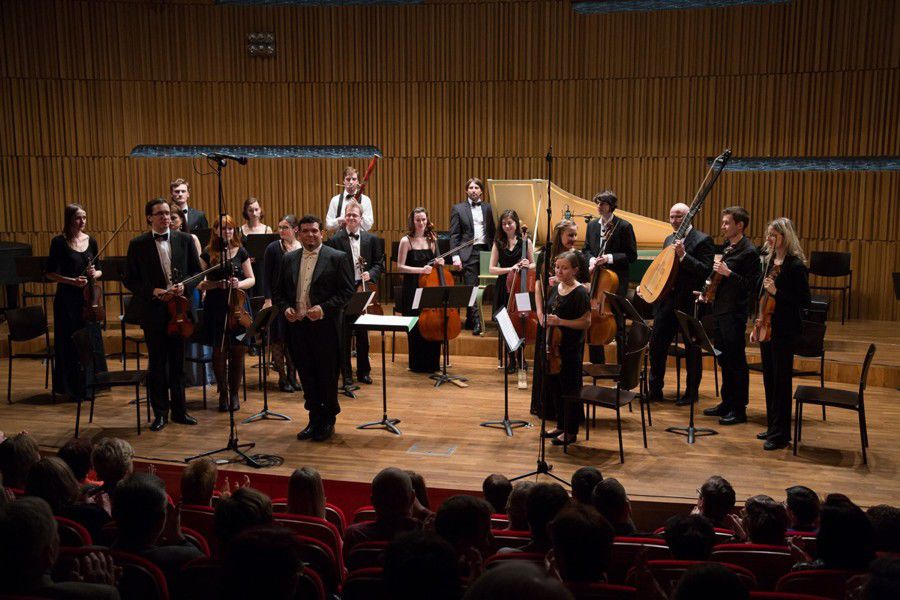Josef Schreier was one of the many Czech teachers who, over the years, have brought musical culture to deprived rural areas. Our knowledge of him is very sketchy. We are certain that he was born on 8 January 1718 in Dřevohostice, near Přerov. There is evidence that in the years 1741–1760 he lived in Bílovice, near Uherské Hradiště, where he was the local schoolteacher. We know that 12 children were born to his wife Anna and him while they were living there. Nothing else is known about his life.
Schreier is among the handful of composers of his period who set to music Czech texts that were not just spiritual but also secular in character. He is known as the composer of the folk singspiels Aurea libertas, Veritas exulans and Opera o Landeborkovi [An Opera about Landebork]. Of his sacred works, we know only Missa pastoralis in C boemica, which mixes passages in the Czech and Latin languages and uses musical devices typical of Moravian Wallachia. Strangely, we do not know of any of Schreier’s Latin works, even though it is evident from the titles of the works cited that he knew the language. His works have been preserved in Moravia only in the places where the Czech -speaking population prevailed, including Kroměříž, Lipník nad Bečvou, Kvasice, Bystřice pod Hostýnem and Čechy pod Kosířem.
The lyrics of the Good Friday Oratorio, a sepolcro, correspond to the usual treatment of the subject. Justice (bass) calls the Sinner to account. The Sinner (tenor) realises what he has done and falls into despair. He realises the sins he has committed against God and is afraid he will be damned forever. God’s Mercy (alto) briefly reminds him of everything that Christ has suffered for him, from the anguish in the Garden of Gethsemane to the terrible crucifixion. The Angel (soprano) encourages the Sinner to repent his evil deeds, and accept that the innocent Christ has sacrificed his life for him (alto and tenor). In the conclusion, a choir of all the performers renders thanks to God for his boundless mercy.
This action takes place over nine recitatives and eight arias, redolent of strophic songs. The overture, with dotted rhythms in its introduction, is imbued with drama and betrays Schreier’s remarkable knowledge of the contemporary musical devices used to express pain. We do not know what Schreier employed as model for his treatment of the recitatives. Technically, the violin parts are the most demanding, whereas less experienced singers are able to perform the melodies of the arias.
Jiří Sehnal, translated by Štěpán Kaňa
____________________________
THY WILL BE DONE
J. Schreier: Good Friday Oratorio
Baroque Orchestra of Prague Conservatory / Jakub Kydlíček
Anna Petrtylová canto (Genius caelestis)
Monika Machovičová alto ( Misericordia)
Marek Žihla tenor (Peccator)
David Malát bass (Iustitia)
Church of the Assumption of Our Lady, Jezuitská street
April 18, 9 PM

